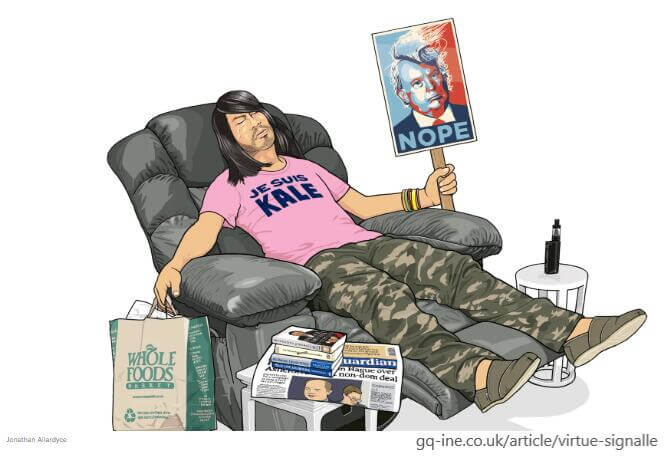The Great Goodreads Migration
Lately, I’ve been watching the Goodreads-to-StoryGraph migration unfold, and I have to admit—it’s my new guilty pleasure. On the surface, it seems noble: readers leaving behind a clunky, Amazon-owned platform to support an independent one led by a Black woman, Nadia Odunayo. But I’m starting to wonder: are we actually making a difference here, or are we just hopping on the latest “look how good I am” bandwagon?
Don’t get me wrong—this isn’t me pointing fingers. I’ve been guilty of this kind of thing myself. At the same time I’m writing this, I’ve got another window open, shame-filling my Amazon cart. I’ve jumped on causes I didn’t fully understand because it felt good to “do something.” And if I’m being really honest, the view from a high horse can be addictive—but wow, the fall from that height is brutal.
Basically, If performative-action were a sport- I would have a trophy case full of medals.

But here’s the thing: I’ve changed. After years of watching people (myself included) race to update their social media profiles as fast as they accessorize their shoes, I started to wonder—when we do this are actually making an impact, or are these actions just… actionless?
What’s Wrong With Goodreads?
Now, let’s be fair—Goodreads has given us plenty of reasons to jump ship. The Amazon-owned site feels like it hasn’t been updated since the early 2000s. The interface is clunky, the app crashes constantly, and don’t even get me started on the rigid five-star rating system. It’s like Goodreads decided “meh, good enough” after Amazon bought it in 2013 and never looked back.
Then there’s the review-bombing drama, where groups pile on one-star reviews for books they haven’t even read. Case in point: Elizabeth Gilbert’s The Snow Forest. The book was pulled after it got review-bombed for being set in Russia—because apparently, “geography” is a crime now. And let’s not forget Cait Corrain, the debut author caught using fake accounts to trash other authors’ books.
So yeah, I get it. Leaving Goodreads for some makes sense.
But here’s where the door slammed many in the ass on the way out.
When Good Intentions Go Off the Rails
I’ve seen a lot of people say they’re leaving Goodreads for The StoryGraph because it’s owned by a Black woman. And while that sounds great in theory, even StoryGraph CEO Nadia Odunayo has admitted it makes her uncomfortable. In a blog post, she said, “I do struggle with the idea of people feeling like they have to use StoryGraph just because I’m Black.” She wants people to use her platform because it’s good—not because it checks a box on someone’s performative activism list.
And that’s where I start to feel conflicted. Because yes, supporting an independent, innovative platform is awesome. But doing it just to prove how socially conscious you are? That feels a little… off.
It reminds me of those viral interviews where people rail against “Obamacare,” only to realize they’re actually losing their own healthcare when it’s gone. It’s like protesting for the sake of protesting, without really understanding what you’re fighting for. And I say this as someone who’s definitely jumped on bandwagons without doing my homework—because, let’s be honest, getting truly informed these days takes effort, critical thinking, time, serious ego deflation, and a freaken PhD in media literacy.
But here’s the thing: being of service—truly being of service—isn’t about showing off or proving to the world that you care. It’s about the quiet actions, the work done in the background, the things you don’t post about. Actions speak louder than words, especially when they’re done without expectation of credit. If the goal is real change, then doing the work—without needing applause—should be enough.
The StoryGraph Deserves Better
The StoryGraph is genuinely a high preforming platform, and next to it, Goodreads looks like it’s still using dial-up. The StoryGraph is innovative, user-focused, and it deserves to be supported for those reasons—not just because of who owns it.
When we reduce our support to “I’m using this because the CEO is Black,” we’re completely missing the point. I have to applaud Odunayo for handling this with such grace, because honestly, I found it troubling. It diminishes the platform’s real achievements, turning it into a symbol of virtue signaling instead of recognizing it as a genuine step forward.
The Bigger Picture
Protest, even when it’s clumsy or imperfect, can lead to change. People leaving Goodreads does send a message, even if not everyone understands the full impact. And honestly? That’s okay. We’re all learning.
But if we want to make a real difference- we have to go deeper. It’s not enough to leave Goodreads and support StoryGraph out of guilt or peer pressure. We have to think critically about the platforms we choose to use, the businesses we support, and allow ourselves to change our minds without fear of being “cancelled”.
I’m not saying we all need to be perfect. Believe me, I’m far from it. But if we’re going to call something “action,” let’s make sure it actually is. Let’s ask ourselves if we’re helping create real change—or if we’re just accessorizing our activism to match the latest trend.
